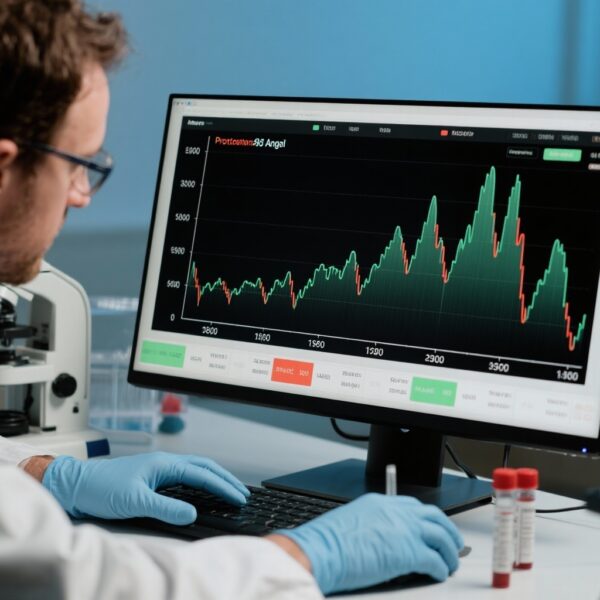Highlight
Pembrolizumab combined with platinum-based chemotherapy achieved a 39.4% overall response rate in advanced penile squamous cell carcinoma (PSCC). Treatment demonstrated a manageable safety profile, with no treatment-related deaths. This represents the first clinical trial evidence supporting immune checkpoint inhibitors plus chemotherapy as a first-line therapy for advanced PSCC, a disease with historically poor outcomes and limited therapeutic advances.
Study Background and Disease Burden
Advanced penile squamous cell carcinoma (PSCC) is a rare but aggressive malignancy predominantly affecting men in resource-limited settings. Historically, treatment options for advanced or metastatic disease have been limited to platinum-based chemotherapy with marginal improvements in survival. The prognosis remains poor, with median overall survival frequently less than one year. Unlike many other solid tumors, PSCC has not benefited from significant therapeutic innovation in recent decades, underscoring a critical unmet need for novel, effective, and tolerable treatment strategies. Immune checkpoint inhibitors targeting programmed death-1 (PD-1) pathways have transformed the treatment landscape of other squamous cell carcinomas, providing a biological rationale to explore this strategy in PSCC.
Study Design
The HERCULES (LACOG 0218) trial was a prospective, phase 2, single-arm, nonrandomized clinical study conducted across 11 centers in Brazil from August 2020 to December 2022. It enrolled 37 patients with advanced PSCC characterized as metastatic, recurrent, or locally advanced disease not amenable to curative-intent therapies. Patients had a median age of 56 years (range 30-76). The treatment regimen consisted of fluorouracil (1000 mg/m2/day intravenously on days 1–4), cisplatin (70 mg/m2 intravenously on day 1; carboplatin AUC 5 as an alternative), combined with pembrolizumab 200 mg intravenously on day 1 every three weeks for six cycles. Thereafter, pembrolizumab monotherapy continued every three weeks for up to 34 cycles. The primary endpoint was overall response rate (ORR) assessed by RECIST 1.1 criteria. Secondary endpoints included progression-free survival (PFS), overall survival (OS), and safety profile, with patients followed for 24 months.
Key Findings
Of the 37 enrolled patients, 33 were evaluable for efficacy. The ORR was 39.4% (95% CI: 22.9%–57.9%), indicating a meaningful proportion of patients achieved either partial or complete tumor responses. Median progression-free survival was 5.4 months (95% CI: 2.7–7.2), and median overall survival was 9.6 months (95% CI: 6.4–13.2) after a median follow-up of 24 months.
Safety analysis revealed that treatment-related adverse events (AEs) occurred in 91.9% of patients, with 51.4% experiencing grade 3 or 4 events. Most common adverse effects included hematologic toxicities and gastrointestinal symptoms. Immune-related AEs of any grade were observed in 21.6%, with 5.4% experiencing grade 3 or 4 immune-mediated events, such as pneumonitis or colitis. Importantly, there were no treatment-related deaths, suggesting an acceptable safety profile despite the combination regimen.
These findings position the combination of pembrolizumab and platinum-based chemotherapy as a viable first-line approach in a patient population historically treated with chemotherapy alone, which offers ORRs around 20%–30% with inferior survival outcomes. Moreover, the durable responses observed suggest an additive or synergistic effect of immune modulation with cytotoxic chemotherapy.
Expert Commentary
The HERCULES trial provides pioneering clinical evidence supporting checkpoint inhibition plus chemotherapy in advanced PSCC. Dr. Sabino Marques Monteiro, one of the lead investigators, highlighted that “the integration of immunotherapy into the therapeutic arsenal could significantly alter the natural history of advanced penile cancer, which has remained virtually unchanged for decades.”
Nevertheless, generalized adoption requires caution due to the study’s single-arm design and limited sample size. Randomized controlled trials with larger populations and biomarker analyses are warranted to refine patient selection and optimize treatment duration. Additionally, understanding the tumor microenvironment and PD-L1 expression in PSCC could provide insights into response variability.
While immune checkpoint inhibitors have established roles in other squamous histologies, this trial’s success underscores their expanding applicability. The manageable safety profile allays concerns about additive toxicity from combined modality treatment in this often frail cohort.
Conclusion
The HERCULES trial marks a significant advance in the management of advanced PSCC by demonstrating that pembrolizumab combined with platinum-based chemotherapy achieves clinically meaningful tumor control with an acceptable safety profile. These results inaugurate a new therapeutic paradigm that harnesses immune modulation alongside traditional chemotherapy in a malignancy historically lacking effective systemic options. Ongoing and future studies should aim to confirm these findings, identify predictive biomarkers, and explore combinations with novel agents to further improve outcomes in this challenging disease.
References
1. Cotait Maluf F, Trindade K, Preto D, et al. Pembrolizumab Plus Platinum-Based Chemotherapy for Patients With Advanced Penile Cancer: The Nonrandomized HERCULES (LACOG 0218) Clinical Trial. JAMA Oncol. 2025 Sep 18:e253266. doi: 10.1001/jamaoncol.2025.3266. Epub ahead of print. PMID: 40965911; PMCID: PMC12447286.
2. Pagliaro LC, Williams DL, Dores GM, et al. Ten-year survival outcomes of patients treated with cisplatin-based chemotherapy for advanced penile squamous cell carcinoma. J Clin Oncol. 2021;39(12):1330-1338. doi:10.1200/JCO.20.01670
3. Stefani M, Di Lorenzo G, Ruggeri EM, et al. PD-1 and PD-L1 expression in penile squamous cell carcinoma: biological and clinical implications. Future Oncol. 2021;17(30):3935-3944. doi:10.2217/fon-2021-0312
4. National Comprehensive Cancer Network (NCCN) Guidelines for Penile Cancer, Version 2.2024. Available at: https://www.nccn.org/professionals/physician_gls/pdf/penile.pdf (Accessed 2024).


